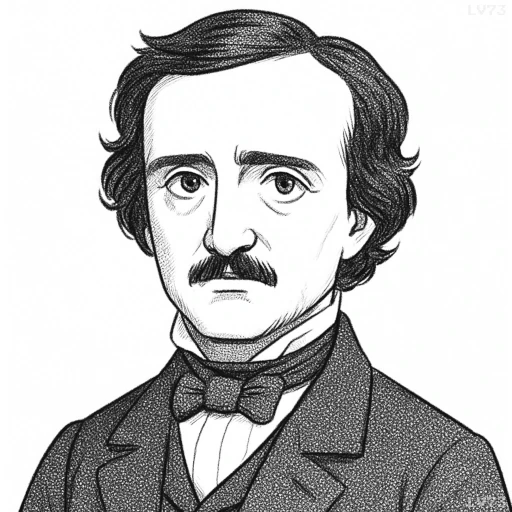“In criticism I will be bold, and as sternly, absolutely just with friend and foe. From this purpose nothing shall turn me.”

- January 19, 1809 – October 7, 1849
- American
- Novelist, poet, critic
table of contents
Quote
“In criticism I will be bold, and as sternly, absolutely just with friend and foe. From this purpose nothing shall turn me.”
Explanation
In this quote, Edgar Allan Poe expresses his commitment to being unwaveringly honest and fair in his approach to criticism, regardless of whether the subject is a friend or a foe. By stating that he will be “bold,” Poe emphasizes his intention to speak with conviction and certainty. The phrase “sternly, absolutely just” reflects his desire to apply a rigorous and uncompromising standard of fairness, showing that his criticism is not swayed by personal relationships or biases. Poe’s statement reflects a deep sense of integrity in his critical work, demonstrating that he values truth and justice above all else, even if it may be uncomfortable or controversial.
Poe, a poet, editor, and critic, was known for his sharp and sometimes scathing critiques of other writers, often challenging the literary standards of his time. His firm stance on just criticism aligns with the intellectual climate of the 19th century, which was characterized by a growing respect for artistic merit and literary innovation. Poe’s criticism was not aimed at personal attacks, but rather at an unwavering belief that quality and integrity in writing should be valued over personal favoritism. His insistence on unflinching fairness speaks to his belief in the importance of honest feedback as a means to foster growth and improve the literary community.
In modern contexts, this quote can be understood as a call for honesty and objectivity in all forms of criticism. Whether in literature, art, politics, or society, the value of boldness and fairness in evaluating others’ work and actions is as relevant today as it was in Poe’s time. In an era of social media and cancel culture, where opinions can often be influenced by personal biases or popularity, Poe’s commitment to absolute justice in criticism encourages a return to truthfulness and integrity in how we assess the work of others, ensuring that praise and criticism are based on merit rather than relationships or public sentiment.
Would you like to share your impressions or related stories about this quote in the comments section?





